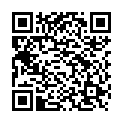|
|
|
| Module code: DFBLG401 |
|
|
4U (4 hours per week) |
|
4 |
| Semester: 4 |
| Mandatory course: yes |
Language of instruction:
German |
Assessment:
Written exam (50%) + presentation (25%) + tests (25%)
[updated 25.11.2020]
|
DFBBW-440 (P620-0005) Business Administration, Bachelor, ASPO 01.10.2013
, semester 4, mandatory course
DFBTO401 (P620-0522) International Tourism Management, Bachelor, ASPO 01.10.2018
, semester 4, mandatory course
DFITM-401 (P620-0471) International Tourism Management, Bachelor, ASPO 01.10.2020
, semester 4, mandatory course
DFBLG401 (P620-0331) International Logistics Management, Bachelor, ASPO 01.10.2018
, semester 4, mandatory course
DFILM-401 (P620-0417) International Logistics Management, Bachelor, ASPO 01.10.2019
, semester 4, mandatory course
DFILM-401 (P620-0417) International Logistics Management, Bachelor, ASPO 01.10.2022
, semester 4, mandatory course
DFBBW-440 (P620-0005) German-French and International Management, Bachelor, ASPO 01.10.2018
, semester 4, mandatory course
DFIM-401 (P620-0005) German-French and International Management, Bachelor, ASPO 01.10.2019
, semester 4, mandatory course
DFBLG401 (P620-0331) Logistics, Bachelor, ASPO 01.10.2013
, semester 4, mandatory course
|
60 class hours (= 45 clock hours) over a 15-week period.
The total student study time is 120 hours (equivalent to 4 ECTS credits).
There are therefore 75 hours available for class preparation and follow-up work and exam preparation.
|
Recommended prerequisites (modules):
None.
|
Recommended as prerequisite for:
|
Module coordinator:
Dr. Julia Frisch |
Lecturer: Dr. Julia Frisch
[updated 07.08.2014]
|
Learning outcomes:
- The lecturer will try to provide an (almost) exclusively German learning atmosphere in the most authentic form possible
- The foreign language will be taught with a subject-related approach.
- After successfully completing this course, students will be able to understand intermediate to more complex newspaper and magazine articles from the German press.
- They will be able to understand specialized oral texts pertaining to various topics.
- They will have improved their ability to take part in discussions.
- They will have improved their writing skills.
- Students will be prepared for a possible career in a country where the target language is spoken.
[updated 25.11.2020]
|
Module content:
- (Inter)culturally relevant, current topics pertaining to the countries in which the target language is spoken.
- Topics related to the students’ lectures
- Specialized vocabulary within the context of the topics (subject areas) discussed
- Subject-related, specialized grammar
- Introduction to reading articles systematically
- Application training (resume and job interview)
[updated 25.11.2020]
|
Teaching methods/Media:
- Presentations by the lecturer
- Plenary and group discussions
- Group work phases where students tackle specific tasks
- Multimedia language lab
- Student presentations
[updated 25.11.2020]
|
Recommended or required reading:
- Teaching materials: texts and exercises compiled by the lecturer
- PowerPoint presentations by the lecturer or equivalent visualization forms
- Newspaper and magazine articles with technical and/or (inter)cultural orientation
- Internet resources
- Authentic video and audio material
[updated 25.11.2020]
|

